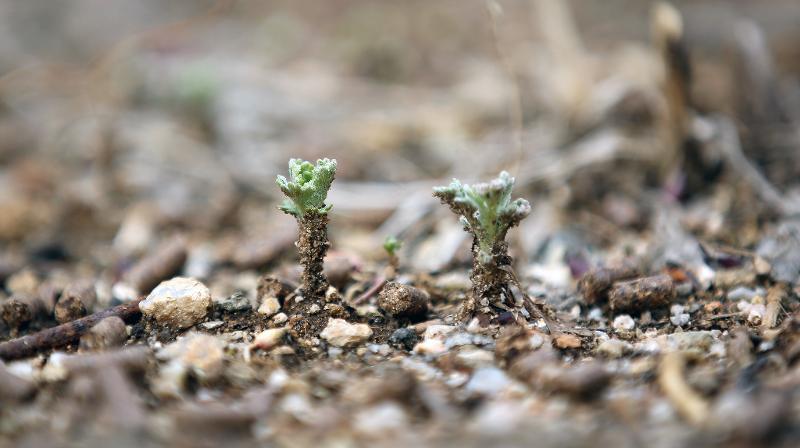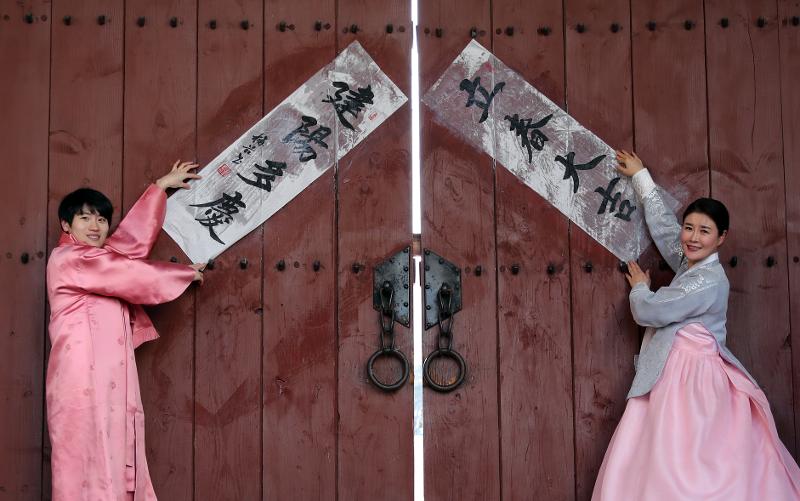
Ipchun, the first of the 24 divisions of the year, falls on Feb. 4 to mark the beginning of spring. (Korea.net DB)
By Xu Aiying and Yoon Sojung
Falling on Feb. 4, ipchun, which literally means "entrance of spring" in Korean, is the first of 24 solar terms that make up the lunar calendar.
Koreans on this day used to perform many rituals to wish for good luck and a good harvest during the year.
One of the most popular customs observed during ipchun is posting large calligraphic notes to wish for good luck. Many houses put notes with phrases inscribed on them on their main doors, pillars or walls to wish for a prosperous new year.
Popular phrases include "May spring's arrival be blessed with great happiness (입춘대길, 立春大吉)"; "On a clear day, many good and joyful things will occur (건양다경, 建陽多慶)"; "May the country prosper and the people be at peace (국태민안, 國泰民安)"; and "May spring bring this family blessings that fill this home with lights (가급인족, 家給人足)."
On this day, farmers around the country performed rituals such as ipchun gut (exorcism) especially on Jeju Island, or brought a wooden bull from the community center across the village in Hamgyeong-do Province to wish for a peaceful new year and a good harvest. Some of them even predicted the weather for the entire year by checking the weather on ipchun.

To celebrate the coming of spring on ipchun, Koreans traditionally post calligraphic notes inscribed with wishes on the doors or pillars of their homes. (Yonhap News)
Koreans also marked ipchun with special food. In the royal court, chefs made osinban, a platter of five spring greens as the seasonal menu for the occasion made from five pungent-tasting spring greens. Commoners also cooked fresh spring greens to usher in the taste of spring.
The spring air will be much clearer with the arrival of usu, or the second of the year's 24 divisions. This is when snow melts to become rain and the spring breeze begins to blow with buds coming up from the ground.
xuaiy@korea.kr